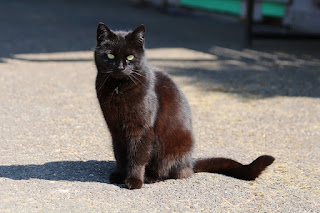Reading Notes A: How Manx Cats Lost Their Tails
This is the story providing a reason for why Manx cats don't have tails. According to this story, during the time of Noah's Ark, the Manx cat was out hunting. She dilly-dallied too long and was late to make it on to the ark. She ran back just in time and barely made it, and the ark's door shut closed on her tail. She nearly drowned and lost her tail but she survived. That is why cats hate water and the Manx do not have tails. Link





